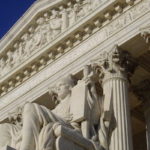Published February 15, 2012
Last Friday, the White House announced that it would revise the controversial ObamaCare birth-control mandate to address religious-liberty concerns. Its proposed modifications are a farce.
The Department of Health and Human Services would still require employers with religious objections to select an insurance company to provide contraceptives and drugs that induce abortions to its employees. The employers would pay for the drugs through higher premiums. For those employers that self-insure, like the Archdiocese of Washington, the farce is even more blatant.
The birth-control coverage mandate violates the First Amendment’s bar against the “free exercise” of religion. But it also violates the Religious Freedom Restoration Act. That statute, passed unanimously by the House of Representatives and by a 97-3 vote in the Senate, was signed into law by President Bill Clinton in 1993. It was enacted in response to a 1990 Supreme Court opinion, Employment Division v. Smith.
That case limited the protections available under the First Amendment’s guarantee of free exercise of religion to those government actions that explicitly targeted religious practices, by subjecting them to difficult-to-satisfy strict judicial scrutiny. Other governmental actions, even if burdening religious activities, were held subject to a more deferential test.
The 1993 law restored the same protections of religious freedom that had been understood to exist pre-Smith. The Religious Freedom Restoration Act states that the federal government may “substantially burden” a person’s “exercise of religion” only if it demonstrates that application of the burden to the person “is in furtherance of a compelling governmental interest” and “is the least restrictive means of furthering” that interest.
The law also provides that any later statutory override of its protections must be explicit. But there is nothing in the ObamaCare legislation that explicitly or even implicitly overrides the Religious Freedom Restoration Act. The birth-control mandate proposed by Health and Human Services is thus illegal.
The refusal, for religious reasons, to provide birth-control coverage is clearly an exercise of religious freedom under the Constitution. The “exercise of religion” extends to performing, or refusing to perform, actions on religious grounds—and it is definitely not confined to religious institutions or acts of worship. Leading Supreme Court cases in this area, for example, involve a worker who refused to work on the Sabbath (Sherbert v. Verner, 1963) and parents who refused to send their teenage children to a public high school (Wisconsin v. Yoder, 1972).
In the high-school case, the Supreme Court found that even a $5 fine on the parents substantially burdened the free exercise of their religion. Under the Patient Protection and Affordable Care Act, employers who fail to comply with the birth-control mandate will incur an annual penalty of roughly $2,000 per employee. So it is clearly a substantial burden.
Objecting employers could, of course, avoid the fine by choosing to go out of business. But as the Supreme Court noted in Sherbert v. Verner, “governmental imposition of such a choice puts the same kind of burden upon the free exercise of religion as would a fine imposed against” noncompliant parties.
The birth-control mandate also fails the Religious Freedom Restoration Act’s “compelling governmental interest” and “least restrictive means” tests.
Does the mandate further the governmental interest in increasing cost-free access to contraceptives by means that are least restrictive of the employer’s religious freedom? Plainly, the answer is no. There are plenty of other ways to increase access to contraceptives that intrude far less on the free exercise of religion.
Health and Human Services itself touts community health centers, public clinics and hospitals as some of the available alternatives; doctors and pharmacies are others. Many of the entities, with Planned Parenthood being the most prominent, already furnish free contraceptives. The government could have the rest of these providers make contraceptive services available free and then compensate them directly. A mandate on employers who object for religious reasons is among the most restrictive means the government could have chosen to increase access.
The mandate also fails the “compelling government interest” test. Given the widespread availability of contraceptive services, and the far less restrictive other ways to increase their availability, the government can hardly claim it has a “compelling” interest in marginally increasing access to birth control by requiring objecting employers to join in this effort.
The “compelling interest” claim is further undercut by the mandate’s exclusion, for purely secular reasons, of employers who offer “grandfathered” plans. These are employer-provided plans that existed at the time ObamaCare was enacted and can continue to operate so long as they do not make major changes. They cover tens of millions of enrollees, according to a recent estimate by Health and Human Services.
In an effort to rally its base in the upcoming November election, the Obama administration seems more interested in punishing religiously based opposition to contraception and abortion than in marginally increasing access to contraception services. It is the combination of the political motive, together with the exclusion of so many employers from the mandate, that has profound constitutional implications. It transforms the mandate into a non-neutral and not generally applicable law that violates the First Amendment’s Free Exercise Clause.
In short, the birth-control mandate violates both statutory law and the Constitution. The fact that the administration promulgated it so flippantly, without seriously engaging on these issues, underscores how little it cares about either.
Edward Whelan, who served in the Justice Department under President George W. Bush, is president of the Ethics and Public Policy Center and is a regular contributor to NRO’s Bench Memos blog. David Rivkin, who served in the Justice Department under Presidents Reagan and George H.W. Bush, represented the 26 states in their challenge to ObamaCare before the trial and appellate courts.





